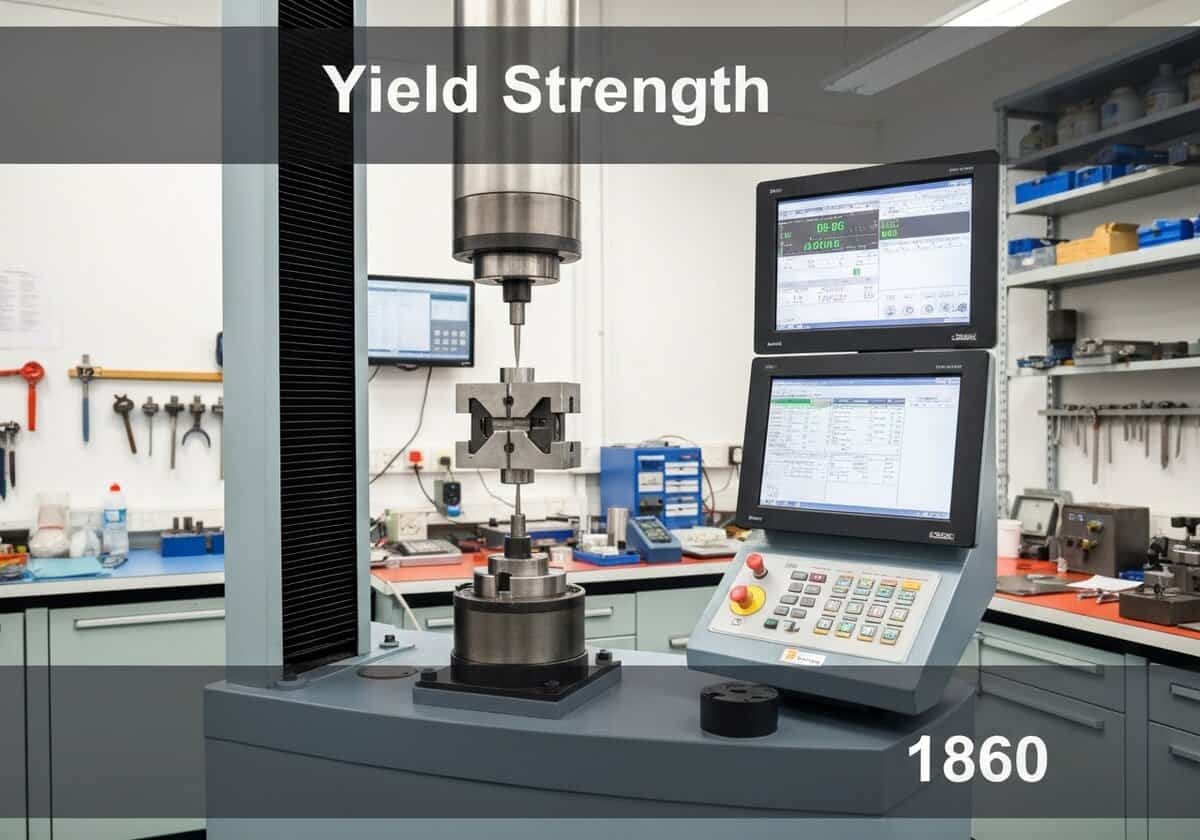Yield strength, or the yield point, is the stress at which a material begins to deform plastically. Prior to the yield point, the material deforms elastically and will return to its original shape when the applied stress is removed. Once the yield point is passed, some fraction of the deformation will be permanent and non-reversible. It marks the limit of elastic behavior.
Resistenza allo snervamento

The transition from elastic to plastic behavior is a critical design consideration. For materials with a clear, sharp yield point (like low-carbon steel), it’s easily identified on the stress-strain curve as a distinct peak (upper yield point) followed by a drop to a lower, constant stress plateau (lower yield point). However, many materials, such as aluminum alloys, exhibit a gradual transition. For these, a proof stress or offset yield point is defined. This is commonly determined by the 0.2% offset metodo, where a line parallel to the initial elastic portion of the curve is drawn from a strain value of 0.002 (or 0.2%). The stress at which this line intersects the stress-strain curve is defined as the 0.2% proof yield strength. This value represents the stress that would cause a permanent, non-recoverable strain of 0.2% upon unloading. The yield strength is a fundamental parameter used to determine the maximum allowable load a mechanical component can bear before it is considered to have failed, as permanent deformation can render a part unusable even if it has not fractured.
Tipo
Interruzione
Utilizzo
Precursori
- understanding of elastic vs. plastic behavior in metals
- development of accurate extensometers to measure small deformations
- industrial need for predictable material performance under load
- theories of dislocation motion in crystalline solids
Applicazioni
- structural design of buildings and bridges to prevent permanent deformation
- automotive crashworthiness design (energy absorption through plastic deformation)
- design of fasteners and bolts
- processi di formatura dei metalli come laminazione, forgiatura ed estrusione
- setting pressure limits for pipes and pressure vessels
Brevetti:
Potenziali idee innovative
Livelli! Iscrizione richiesta
Per accedere a questo contenuto devi essere un membro di !Professionals (100% free)!
DISPONIBILE PER NUOVE SFIDE
Ingegnere meccanico, responsabile di progetto, ingegneria di processo o ricerca e sviluppo
Disponibile per una nuova sfida con breve preavviso.
Contattami su LinkedIn
Integrazione di componenti elettronici in plastica e metallo, progettazione in base ai costi, GMP, ergonomia, dispositivi e materiali di consumo di medio-alto volume, produzione snella, settori regolamentati, CE e FDA, CAD, Solidworks, Lean Sigma Black Belt, ISO 13485 in ambito medico
Stiamo cercando un nuovo sponsor
La tua azienda o istituzione si occupa di tecnica, scienza o ricerca?
> inviaci un messaggio <
Ricevi tutti i nuovi articoli
Gratuito, no spam, email non distribuita né rivenduta
oppure puoi ottenere la tua iscrizione completa -gratuitamente- per accedere a tutti i contenuti riservati >Qui<
Principi di invenzione, innovazione e tecnica correlati














